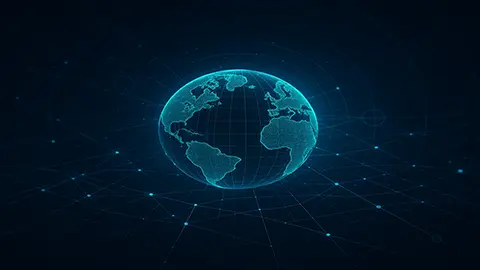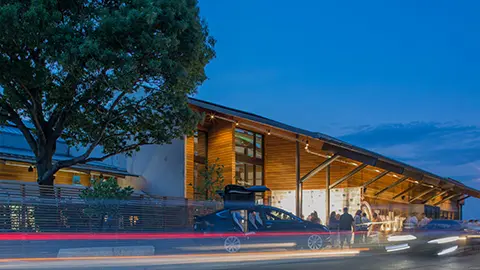America's EV Charging Network
As the reality of an all-electric future continues to evolve, today’s electric car owners have found that any initial “range anxiety” they had experienced has vanished. This has come about for several reasons. First, drivers quickly realize that using an EV day to day is much like using your smartphone. You charge overnight at home and have a fresh, full charge every morning that gets you through the day’s transportation needs – and then some. In the event of taking long road trips where charging is necessary, the charging network across America has quickly expended and will soon make any worry over getting a Fast Charge obsolete.

Eliminating "Range Anxiety"
There are currently 168,000 gas stations in America. The number of service stations has been dwindling over the past decade due to increased competition, shrinking profit margins and stricter environmental regulations. By comparison, in 2020 there were 13,627 public/workplace DC Fast Charging stations and 71,975 Level 2 charging stations available in America. That’s a 6.9% increase over 2019.
President Biden hopes to build 500,000 charging stations from coast-to-coast by 2030 to accelerate the adoption of electric cars in the United States. Today, there is a great deal of real-world information about charging habits and informed predictions about where and how public charging should be deployed. Both Electrify America and Tesla have devoted an incredible amount of money, time and effort into establishing best practices for siting and operating charging stations.
The plan to create a charging network of 500,000 chargers represents at least a five-fold increase in the nation’s existing infrastructure. Biden’s plan will probably cost around $5 billion and will provide roughly 57% of the country’s charging needs by 2030. It is believed that the massive infrastructure upgrade could spark the sale of as many as 25 million electric vehicles.
As you might expect, around 80% of EV charging currently takes place at home making the most important sites for public chargers near highways to enable long-distance travel. Chargers are also becoming plentiful in city centers where people work and shop. A recent study by the Massachusetts Institute of Technology found that installing more charging stations on streets, in addition to the usual locations at parking garages and shopping malls, could encourage more people to buy EVs. The researchers found that drivers were more open to driving electric when they realized that they could charge a little at a time while running errands around town.

Substantial Electric Car Charging Infrastructure Growth
A recent report from the National Renewable Energy Laboratory shows a rapidly changing landscape for EV charging during 2020 where public charging stations grew by 7.6%. DC Fast Charging stations grew by 10.6%. Since 2011, there has been strong year-over-year growth in charging infrastructure. Between 2015 and 2019 alone, the number of charging stations doubled.
While all regions of the U.S. saw substantial growth during 2020, a few stood out. The northeast—including Maine, New Hampshire, Vermont, New York, Massachusetts, Rhode Island, and Connecticut—saw an increase of over 10%, the fastest growth in the country. California's charging infrastructure grew by 9%, even as it continued to boast the largest share of the country's public charging infrastructure. The charging station provider ChargePoint makes up 44% of public EV charging stations in the country – the largest of any charging network.
Proof of the country’s growing charging network may be found on the U.S. Department of Energy’s Alternative Fueling Station Locator. It shows the efforts of EV charging companies and Clean City coalitions. The website includes alternative fueling stations for ethanol, biodiesel, natural gas, EV charging, and hydrogen stations. The Locator includes a free smartphone app for those looking for places to charge their electric cars.
For the ever-expanding list of electric car-specific charging stations (including free charging stations), visit the GreenCars Charging Station Map.
















